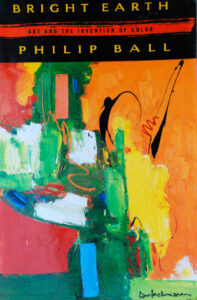 “If the intimate workings of molecules seem invisible, through Philip Ball’s lively prose we see them – coming to life, helping us live. A special delight of this excellent book is the tie that emerges between the wondrous molecules of nature and those that chemists make in the laboratory.” Roald Hoffmann, Nobel Laureate in Chemistry, 1981
“If the intimate workings of molecules seem invisible, through Philip Ball’s lively prose we see them – coming to life, helping us live. A special delight of this excellent book is the tie that emerges between the wondrous molecules of nature and those that chemists make in the laboratory.” Roald Hoffmann, Nobel Laureate in Chemistry, 1981
“Almost no aspect of the exciting advances in molecular research studies at the beginning of the 21st century has been left untouched and in doing so, Ball has presented an imaginative, personal overview, which is as instructive as it is enjoyable to read.” Harry Kroto, Nobel Laureate in Chemistry, 1996
“A must for all those who wish to acquire a basic scientific culture while greatly enjoying it.” Jean-Marie Lehn, Nobel Laureate in Chemistry, 1987
“A modern troubadour, [Ball] deftly and happily extols the magic of tiny leprechauns, furiously active in generating energy, assembling machinery, and exchanging fateful messages that govern everything visible to our gargantuan eyes.” Dudley Herschbach, Nobel Laureate in Chemistry, 1986
“In a society of chemical agnostics, it is a brave missionary who tries to reveal its mysteries, but that is what [Ball] has attempted to do – and done remarkably well… At no point does ‘Stories of the Invisible’ sacrifice sound science for sound bites – we are in the hands of a scholar.” John Emsley, Nature
“Ball’s writing is sharp and… drolly intelligent. Ball offers snappy accounts of [chemistry’s] take on topics ranging from digestion to molecular computing and adds a mass of fascinating detail… The writing is reliably good and often excellent.” David Lindley, New Scientist
“Stories of the Invisible is a wonderful book! Very entertaining, impressive and educational· This book deserves wide distribution.” Chemistry & Engineering News
“An exhilarating journey through the realm of the very small. This poetic journey takes us up the Eiffel Tower, inside the sprawling metropolis of a single human cell, and into the heart of explosives as we learn not just about how molecules work, but something of the political and moral consequences we face as we engage in their manipulation.” Guardian
Viking (2001) ISBN 0-670-89346-3. Farrar Straus & Giroux (1 Feb. 2002). Reissued by Bodley Head in 2008






